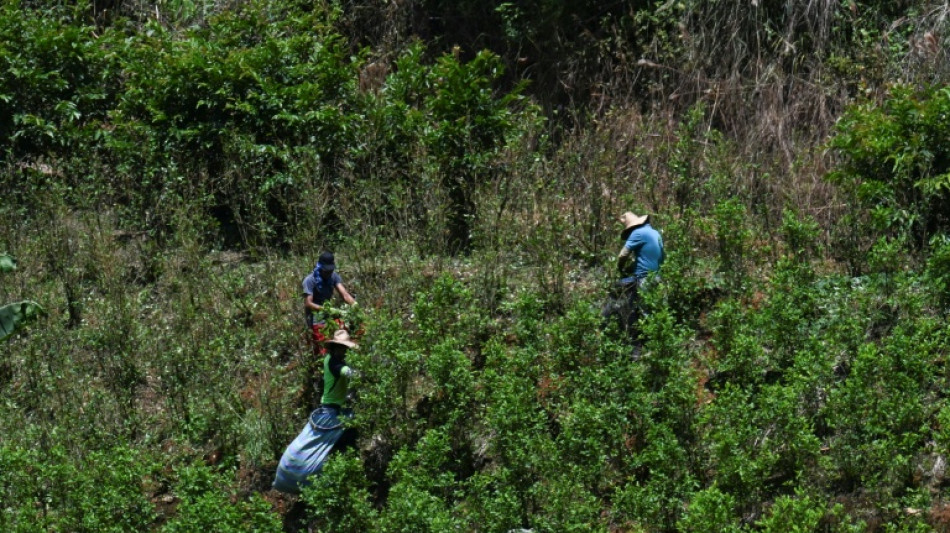
-
 Brazilian 'Superman' cheers child cancer patients in Ghana
Brazilian 'Superman' cheers child cancer patients in Ghana
-
India close in on win over South Africa after Jadeja heroics

-
 Huge explosions rock industrial area near Argentina's capital
Huge explosions rock industrial area near Argentina's capital
-
Bezzecchi takes pole for Valencia sprint and MotoGP

-
 Dominant Shiffrin leads after first slalom run in Levi
Dominant Shiffrin leads after first slalom run in Levi
-
Nine killed in accidental explosion at Indian Kashmir police station

-
 Climate protesters to rally at COP30's halfway mark
Climate protesters to rally at COP30's halfway mark
-
Fighting South Africa lose Rickelton after India 189 all out

-
 Harmer leads South Africa fightback as India 189 all out
Harmer leads South Africa fightback as India 189 all out
-
Prison looms for Brazil's Bolsonaro after court rejects his appeal
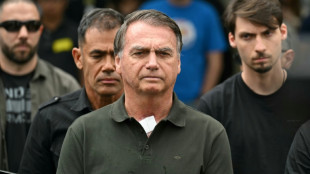
-
 EU bows to pressure on loosening AI, privacy rules
EU bows to pressure on loosening AI, privacy rules
-
India close in on lead despite South African strikes
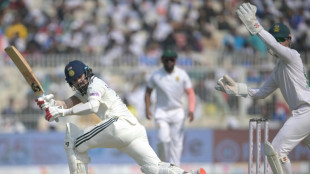
-
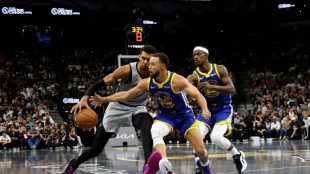 Curry's 49 points propel Warriors in 109-108 win over Spurs
Curry's 49 points propel Warriors in 109-108 win over Spurs
-
NZ boxer Parker denies taking banned substance after failed test
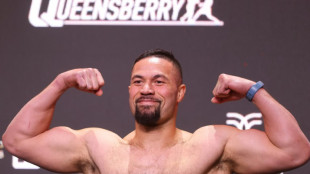
-
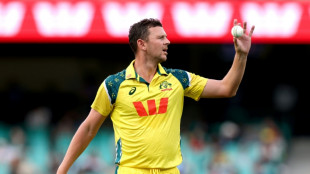 Australia setback as Hazlewood ruled out of 1st Ashes Test
Australia setback as Hazlewood ruled out of 1st Ashes Test
-
Australia pace spearhead Josh Hazlewood ruled out of 1st Ashes Test
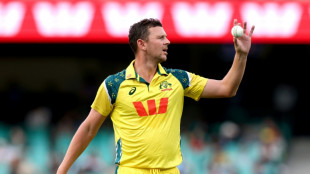
-
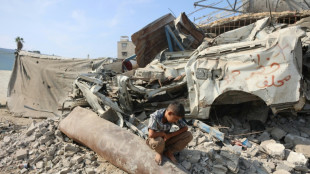 UN Security Council to vote Monday on Trump Gaza plan
UN Security Council to vote Monday on Trump Gaza plan
-
Japan's Tomono leads after men's short program at Skate America

-
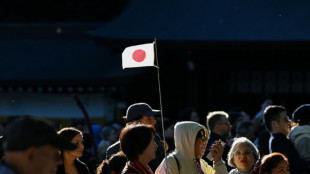 China tells citizens to avoid Japan travel as Taiwan row grows
China tells citizens to avoid Japan travel as Taiwan row grows
-
Purdue Pharma to be dissolved as US judge says to approve bankruptcy
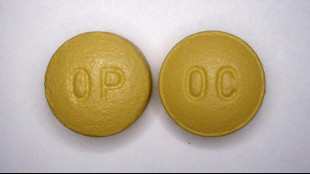
-
 Iran's first woman orchestra conductor inspires
Iran's first woman orchestra conductor inspires
-
Wood gets all-clear in boost for England

-
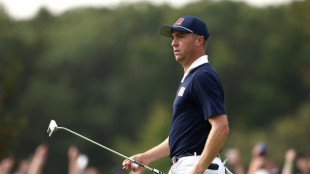 Golf's world No. 8 Thomas has back surgery
Golf's world No. 8 Thomas has back surgery
-
Rebooted Harlem museum celebrates rise of Black art

-
 'Desperation in the air': immigrant comics skewer Trump crackdown
'Desperation in the air': immigrant comics skewer Trump crackdown
-
UN regulator says shipping still wants to decarbonize -- despite US threats
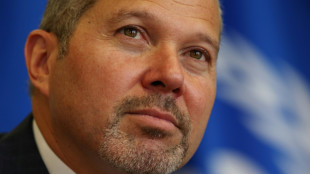
-
 Grant, Kim share halfway lead in LPGA Annika tournament
Grant, Kim share halfway lead in LPGA Annika tournament
-
Musk's Grokipedia leans on 'questionable' sources, study says

-
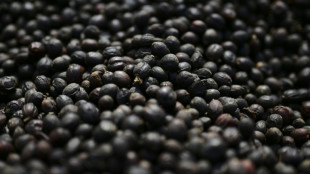 Trump signs order to lower tariffs on beef, coffee, other goods
Trump signs order to lower tariffs on beef, coffee, other goods
-
Croatia qualify for 2026 World Cup, Netherlands close, Germany in limbo
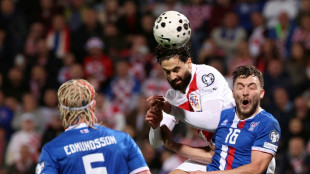
-
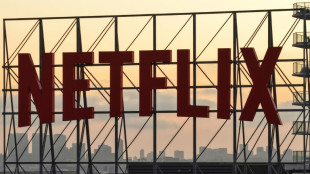 'Last Chance U' coach dies after shooting: US police
'Last Chance U' coach dies after shooting: US police
-
Sinner completes perfect ATP Finals group stage, Auger-Aliassime reaches last four

-
 Woltemade sends Germany past Luxembourg in World Cup qualifier
Woltemade sends Germany past Luxembourg in World Cup qualifier
-
Croatia qualify for 2026 World Cup with 3-1 win over Faroes
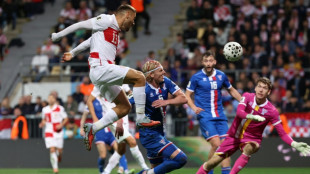
-
 Kai Trump makes strides but still misses cut in LPGA debut
Kai Trump makes strides but still misses cut in LPGA debut
-
Return to bad days of hyperinflation looms in Venezuela
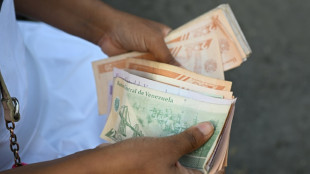
-
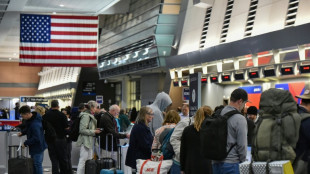 US airspace recovers as budget shutdown ends
US airspace recovers as budget shutdown ends
-
Russia strike on Kyiv apartment block kills six, Ukraine says
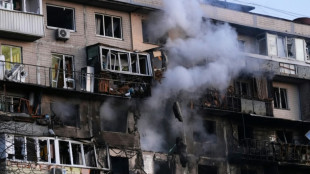
-
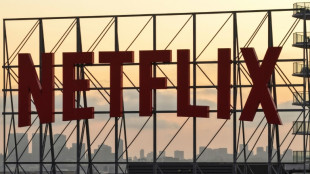 Arrest made in shooting of 'Last Chance U' coach: US police
Arrest made in shooting of 'Last Chance U' coach: US police
-
At COP30, senator warns US 'deliberately losing' clean tech race with China
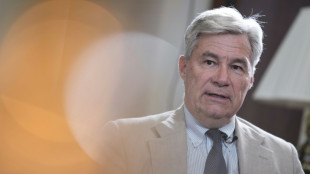
-
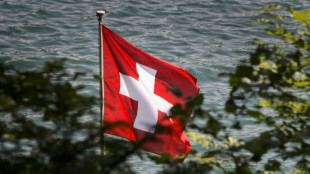 US, Switzerland say deal reached on trade and tariffs
US, Switzerland say deal reached on trade and tariffs
-
Fossil fuel lobbyists out in force at Amazon climate talks: NGOs

-
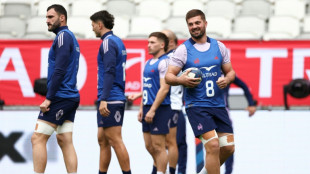 Returning Alldritt blames himself for France axing
Returning Alldritt blames himself for France axing
-
Stocks struggle on US rates, tech rally fears
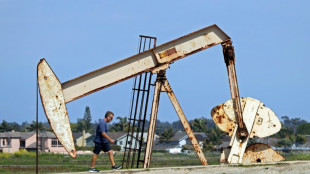
-
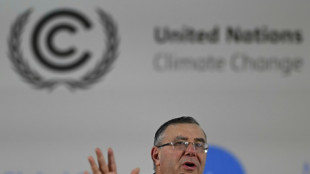 A rare oil CEO shows up at COP30, spars with activists
A rare oil CEO shows up at COP30, spars with activists
-
Trump demands probe into Epstein links to Bill Clinton
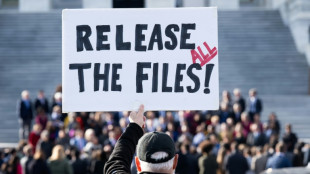
-
 England great Anderson says 'weak' Australia still Ashes favourites
England great Anderson says 'weak' Australia still Ashes favourites
-
Indigenous protesters disrupt UN climate summit again
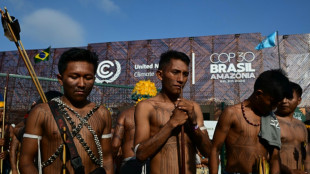
-
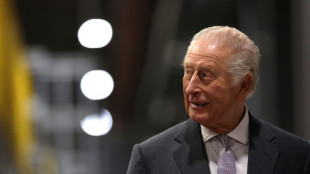 Gun salutes for King Charles III as he marks 77th birthday
Gun salutes for King Charles III as he marks 77th birthday
-
Ford urges England to make their own New Zealand history
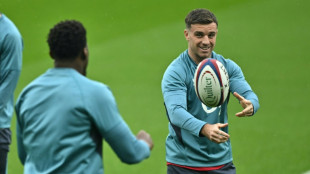

Are US strikes hurting Latin America's drug trade?
US military strikes that Washington claims have targeted "narco-terrorists" ferrying drugs to American soil are having little to no impact on Latin America's bustling narcotics trade, experts say.
The strikes have killed at least 37 people, most of them in Caribbean waters, according to US figures.
Relatives and the home governments of many of the dead deny involvement in drug-running, but experts say the killings are illegal even if they target known narcotics traffickers.
The operations have raised questions in the region about US President Donald Trump's endgame.
Is this truly another battle in the global war on drugs -- and if so, is the United States going after the right people? Or is this something geopolitically broader?
- Wrong target? -
The US administration's actions in the Caribbean "will have zero impact on drug trafficking," said Laura Bonilla of the Pares research center in Colombia, the world's biggest cocaine producer -- most of it destined for the United States.
More drugs are exported via the Pacific -- from ports in Colombia, Mexico, Peru and Ecuador -- than via the Caribbean Sea, where the strikes have been focused thus far.
According to the government in Ecuador, which is plagued by drug gangs, 70 percent of the cocaine destined for the rest of the world leaves from its Pacific ports.
After several strikes in the Caribbean, the United States on Wednesday announced its first attack in the Pacific, with at least two people reported dead.
Experts point out that transnational cartels are the primary buyers and distributors of drugs -- not the Venezuelan or Colombian groups blamed by the Trump administration.
Neither Venezuela nor Colombia, whose citizens have been targeted in the strikes, are major exporters in their own right.
Bonilla said she questions the Pentagon's assertion that guerrilla fighters from Colombia's leftist National Liberation Army (ELN) were among those killed by US forces.
"A total lie.... The ELN doesn't take boats out in the Caribbean because the ELN doesn't own the business," she said.
- Political goals? -
Leaders, analysts and citizens alike have questioned Washington's motives.
Some see the campaign as a distraction from Trump's policy problems at home, while others suspect an attempt to oust leftist Latin American leaders with whom Trump has clashed.
"This is not about Latin America. This is part of his (Trump's) narrative to justify the destruction of... competitive democracy," said Bonilla.
Venezuelan President Nicolas Maduro -- whose last two reelection victories have been widely disputed -- has accused Washington of plotting "regime change," while Colombia's Gustavo Petro has suggested the idea of "a coup d'etat against me."
"Politically, Trump's actions are clear, as he aims to influence... the 2026 presidential elections in Colombia," Juana Cabezas, a researcher specializing in armed conflicts at non-governmental organization Indepaz, told AFP.
"But also, he seeks to establish a maximum point of control and exert power over the region in relation to Venezuela. So, clearly, there is an important geopolitical issue here."
- Counterproductive? -
In the midst of the strikes, Colombian drug traffickers have remained active on TikTok, glorifying their trade in music videos set amid coca leaf crops and drug laboratories.
"There is no perception that people are concerned," a 45-year-old former coca grower told AFP in the Cauca province, where much of Colombia's cocaine comes from.
"Those people (the narcos) are indifferent, they see it as an international show (...) that does not really affect the illicit economy."
Others say the drug lords may even benefit, if the threat of supply problems push up prices.
The strikes "do not affect anything, they continue (to produce drugs) as always," a person with close ties to an armed drug group told AFP.
"Moreover, they may even benefit as it becomes more expensive."
N.Awad--SF-PST
